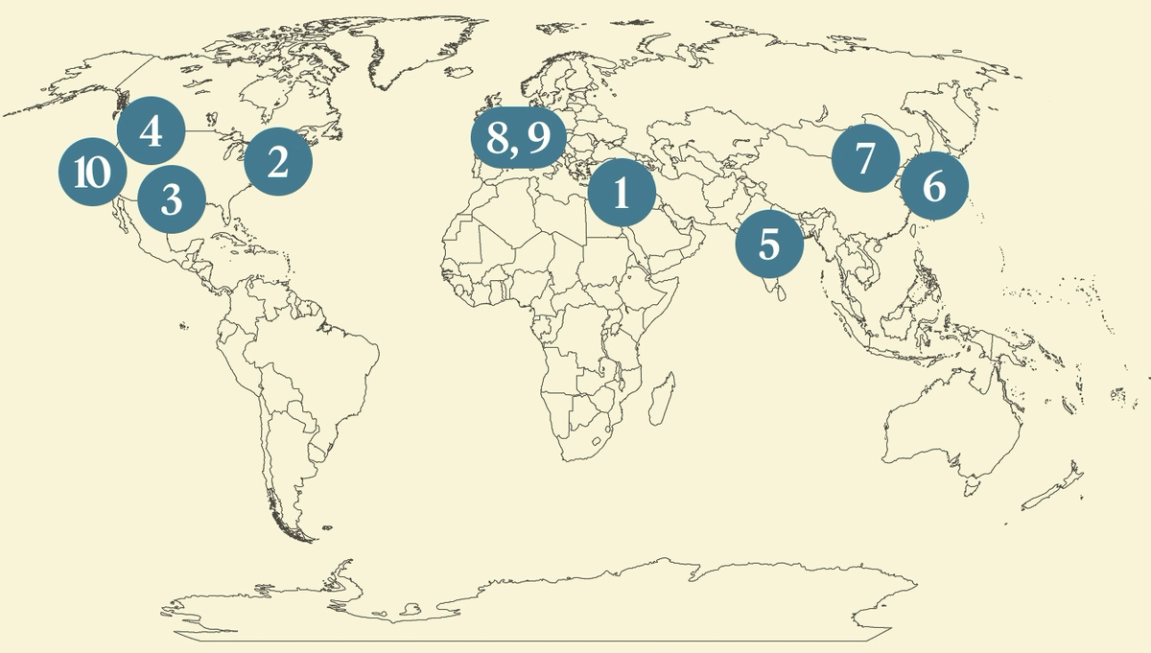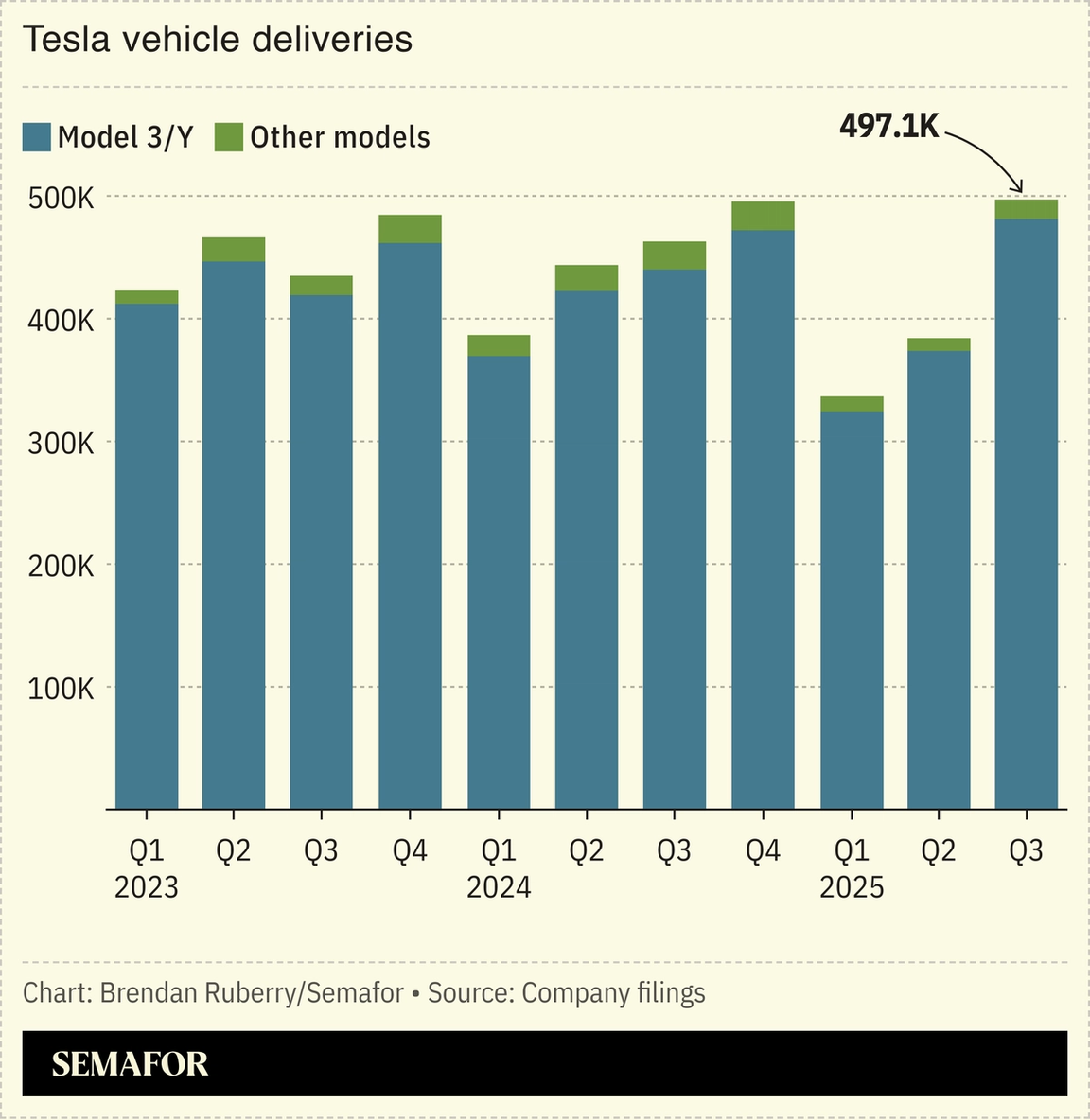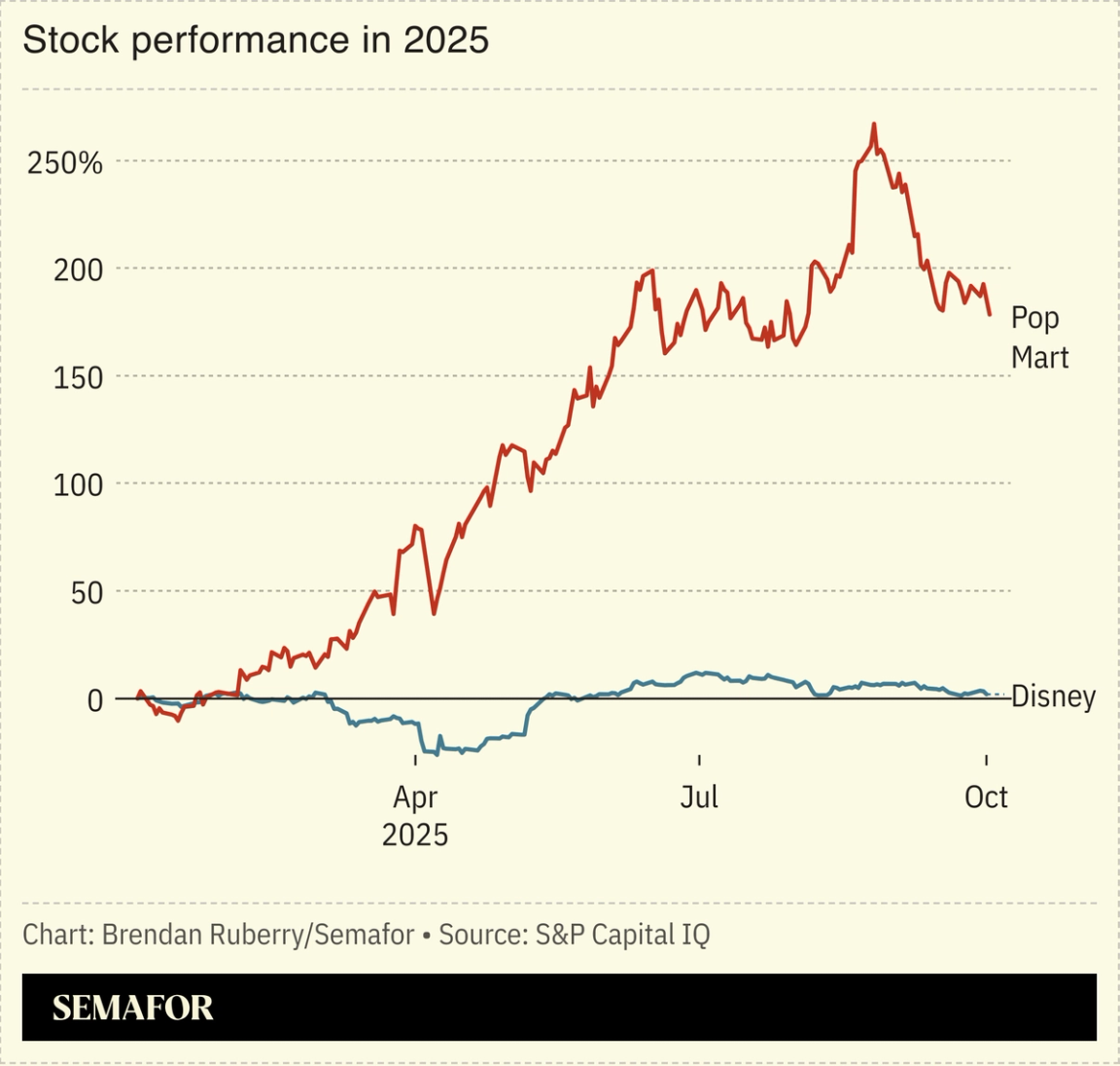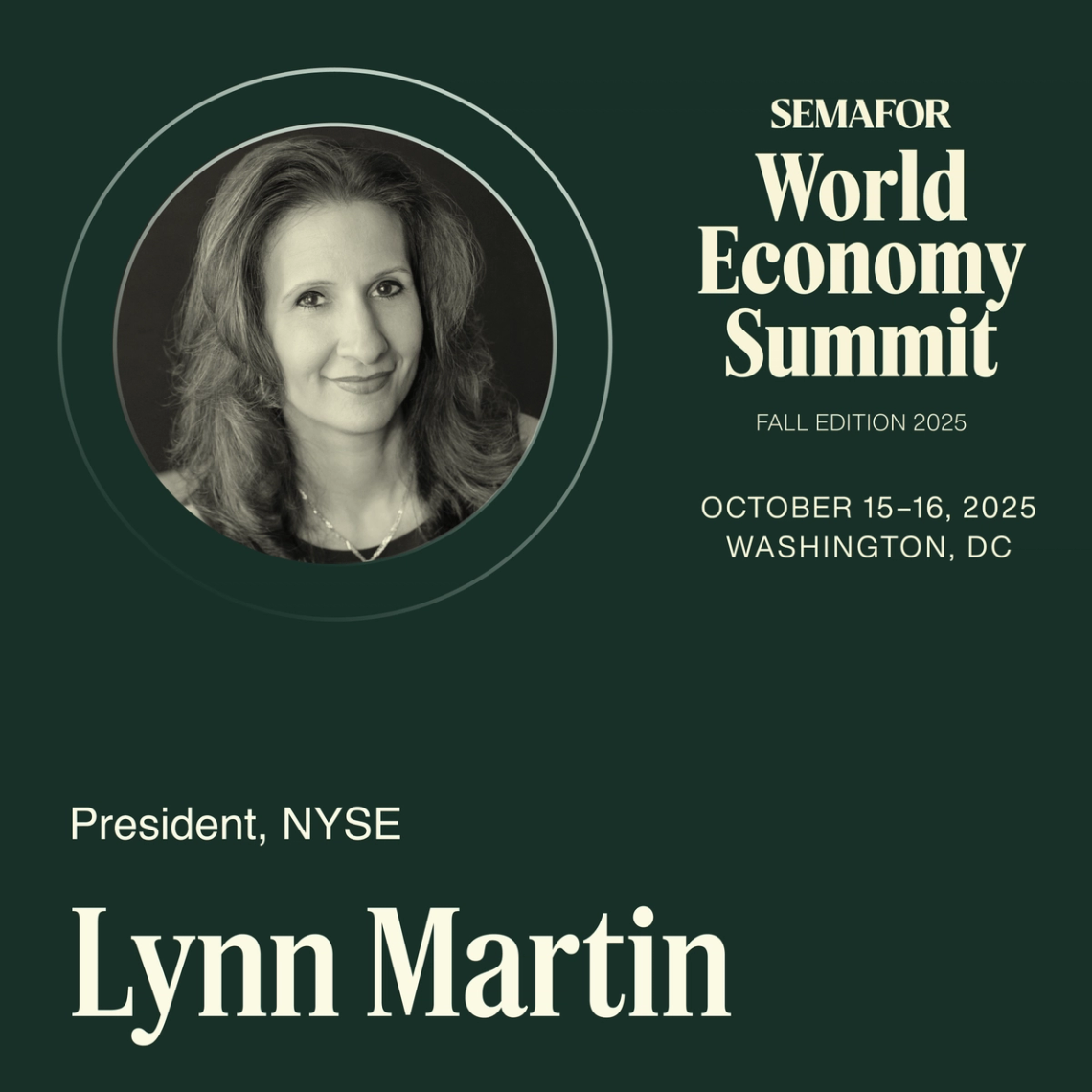| | Hamas’ response to the US’ peace plan for Gaza appears imminent, Tesla records a surprise sales surg͏ ͏ ͏ ͏ ͏ ͏ |
| |  | Flagship |  |
| |
|
The World Today |  - Hamas mulls Gaza plan
- Trump’s extensive dealmaking
- Tesla sales surge
- Blue Origin wins NASA bid
- India’s Silicon Valley lags
- K-pop in India?
- Labubu’s Disney dreams
- Shein angers Angers
- France’s ‘rockstar’ economist
- War against AI ‘slop’
 The inaugural column from Semafor’s Andy Browne on why Washington may have to sue for economic peace with China. |
|
Hamas mulls Gaza peace plan |
 Dawoud Abu Alkas/Reuters Dawoud Abu Alkas/ReutersHamas’ response to the Israel-backed US peace plan for Gaza could be “positive,” and may come as soon as Thursday, The Times of Israel reported. Arab mediators hailed productive talks with the group, but said it will likely demand amendments to provisions like Hamas’ disarmament and its exclusion from Gaza’s governance. Still, the deal “contains too much promise” for Hamas to ignore, The Atlantic wrote, and it could allow the group to advance its ambitions in the West Bank. Hamas is also under pressure from regional powers, as well as from many Palestinians in Gaza, who want an end to the nearly two-year conflict. “Hamas needs to understand: Enough is enough,” one Gazan told The New York Times. |
|
Trump’s dealmaking upends capitalism |
 Donald Trump and Pfizer CEO Albert Bourla. Ken Cedeno/Reuters Donald Trump and Pfizer CEO Albert Bourla. Ken Cedeno/ReutersUS President Donald Trump’s aggressive dealmaking is upending the free-market capitalism that Republicans have traditionally championed, analysts argued. The White House is pursuing deals across as many as 30 sectors, Reuters reported, offering to take equity stakes in companies or grant them tariff relief in exchange for concessions like lower prices or expanded US manufacturing, with the aim of reshaping supply chains and reducing reliance on China. Some companies welcome the strategy, but the president’s interventions echo state-driven models abroad, one expert said. Trump has something in common with the socialists he often condemns, The Wall Street Journal’s Greg Ip argued: “He thinks the country runs better when he tells companies and their shareholders what to do.” |
|
Tesla’s surprising sales surge |
 Tesla’s sales spiked by 22% in the third quarter of this year after a long decline, as US buyers raced to take advantage of electric vehicle incentives before they expired. A law ending a $7,500 federal EV tax credit came into effect Sept. 30; other manufacturers saw even larger jumps this quarter than Tesla. The boost may not last, but there are other signs that Elon Musk’s car company may be turning things around. Tesla’s European sales also increased in September after declining all year, Reuters noted, although admittedly from a low baseline: January-August sales were down 32.6% year-on-year, owing to a backlash against Musk and an aging range of vehicles. |
|
Bezos’ quest to challenge SpaceX |
 Joe Skipper/Reuters Joe Skipper/ReutersJeff Bezos’ space company, Blue Origin, won a contract to deliver a NASA rover to the moon. The $190 million award is contingent on the firm demonstrating that it can land its own vehicle on the lunar surface by year’s end. If its Blue Moon lander is successful, that would be a big boost for Blue Origin’s efforts to seriously compete with Elon Musk’s SpaceX, which has long dominated the commercial space sector. Bezos’ other space venture, Project Kuiper — a competitor to SpaceX’s satellite broadband provider, Starlink — is in testing. |
|
India’s Silicon Valley struggles to keep up |
 Manjunath Kiran/AFP via Getty Images Manjunath Kiran/AFP via Getty ImagesBengaluru, India’s Silicon Valley, is home to huge campuses for tech giants and international banks, but its aging infrastructure could slow the country’s tech sector. Weekday commutes to where most multinational companies are headquartered can take hours, a metro line to the district is years delayed, and the buildings lack access to piped water. The “staggering growth” of Bengaluru’s tech sector “was not foreseen,” an industry figure told the Financial Times. India’s abundant, cheap tech talent has attracted major international companies, which have set up offices in several cities; they employ hundreds of thousands of locals and have become a crucial engine of economic growth. But in Bengaluru and elsewhere, municipal infrastructure has not kept pace with the influx of investment. |
|
K-pop juggernaut eyes India |
 Chris Gallagher/Reuters Chris Gallagher/ReutersThe world’s largest K-pop company is making a bid for India, but analysts are divided over whether the business will succeed there. Korean entertainment juggernaut Hybe’s new Mumbai subsidiary is an example of its global ambitions; it has set up shop in Japan, China, the US, and Latin America. Global interest in K-pop is soaring as Hybe and other record labels tailor acts to fit local cultures and interests. And India has a young population and huge music market, The Korea Times noted. One K-pop commentator, however, was skeptical that the genre could compete with Bollywood’s dominance, and India’s diversity means regions have their own stars, languages, and norms — why past attempts by global giants to enter the Indian entertainment industry have failed. |
|
Labubu maker inspired by Disney |
 The Chinese company behind the viral Labubu dolls wants to replicate Disney’s success as it rivals the American giant. Pop Mart surpassed Disney’s toy sales in the first half of the year, according to Chinese media, with the toothy monsters contributing to an annual 1,276% increase in the company’s plush product revenue. A top Pop Mart executive told Reuters that the company is drawing inspiration from Disney’s success with Mickey Mouse and is trying to turn Labubu into an IP juggernaut, complete with theme parks and entertainment, even as some analysts question the company’s reliance on a single character. “This is the first time a Chinese company has gotten so close to becoming a Western cultural staple,” Wired wrote. |
|
 Lynn Martin, President, NYSE, will join the stage at the Fall Edition of Semafor’s World Economy Summit. Hosted in the Gallup Great Hall and spanning eight sessions over two days, Semafor editors will feature on-the-record interviews on the state of global growth and finance, AI advancements, powering global energy needs, and the forces reshaping the world economy. Each session brings together the leaders and forces most directly shaping the global economy, with programming powered by Semafor’s world-class editorial and executive leadership.
|
|
Shein picks France for first stores |
 Isabel Infantes/Reuters Isabel Infantes/ReutersShein, the Chinese online fast-fashion retailer, has chosen to put its first brick-and-mortar stores in France. The first outlet will open in a Paris department store in November, followed by Angers, Dijon, Grenoble, Limoges, and Reims. Shein has launched pop-ups before, but never permanent shops; its low overhead is part of why it is able to offer dresses for $14 and jeans for $23. The firm said France’s “influential global fashion market” was behind its decision. French companies are, inevitably, annoyed: Several local retailers have gone bust lately amid competition from international giants, and an industry spokesperson said Shein would “flood our market even more massively with disposable products.” |
|
France’s polarizing ‘rockstar’ economist |
 Francois Walschaerts/Pool via Reuters Francois Walschaerts/Pool via ReutersA young “rockstar” economist has become the most “polarizing figure in French politics,” according to Politico EU. Gabriel Zucman, 38, crafted a proposal dubbed the “Zucman tax” that’s meant to rescue the EU’s second-largest economy from its debt crisis. He argues that households worth more than €100 million should pay 2% of their assets in taxes, bringing in an estimated €20 billion a year. The tax is a hot topic in Paris; the centrist ruling party opposes the idea, but needs the support of a left-wing party to push a spending plan through. The merit of his pitch “is not the tax itself, it is the diagnosis and moving away from the idea that nothing can be done,” one French official said. |
|
Humans are resisting AI ‘slop’ |
Even as AI-generated content becomes more ubiquitous online, there are signs humans are “winning the war against AI slop,” a prominent culture commentator argued. Tech platforms are increasingly leaning into AI content, which critics deride as “slop,” or low-quality junk made with little effort or creativity: Meta unveiled a feed made up of AI videos — “a move no one asked for,” TechCrunch wrote — |
|
|